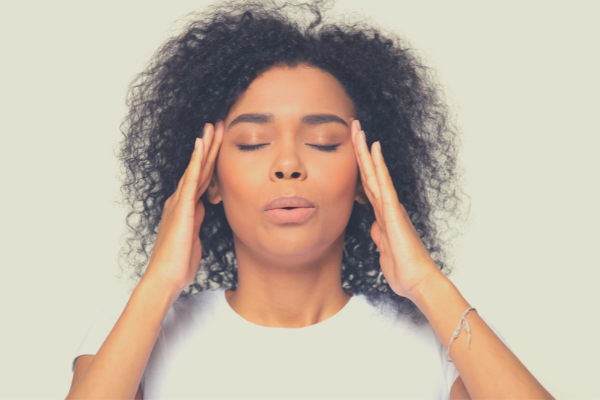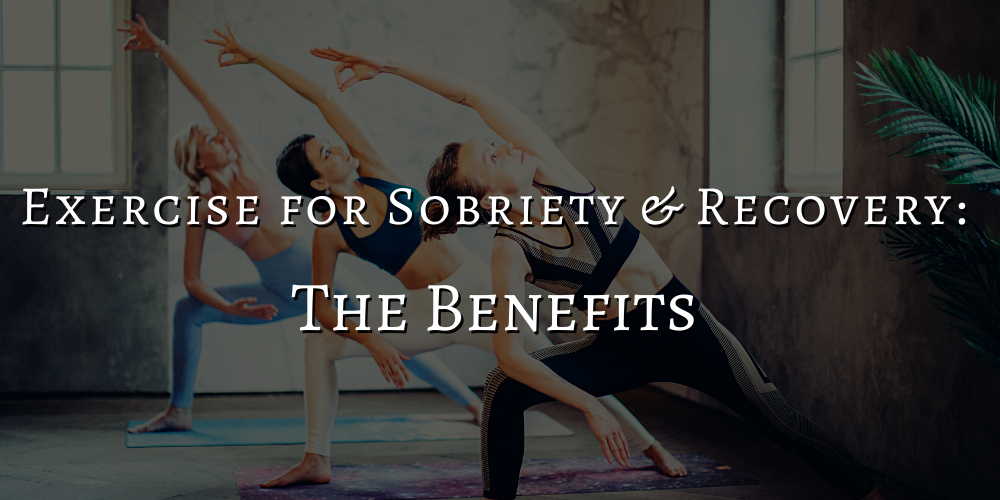It is often overlooked how important it can be to keep sobriety in check by following a regular exercise program. Dual diagnosis puts many at risk for chronic diseases such as diabetes, high cholesterol and high blood pressure. These diseases can increase the risk of having a stroke or heart attack, and some types of cancer. Exercise is an essential part of lifestyle modification that can prevent these diseases. It provides a consistent routine, fills spare time, manages mental health, and inspires higher self-esteem. Regular exercise is not difficult, even though it can seem daunting. However, you can see the benefits of moving regularly.
So whether you are looking into a dual diagnosis treatment center or out of one, this article will discuss the effects exercise has on your mind, body, and soul, and show you how to get started with exercise no matter where you are.
What does exercise do to your mind and body?
Exercise is beneficial for your mind and body when you are recovering from a substance abuse disorder. Exercise can help improve your mental and physical health. Let’s look closer at the benefits of regular exercise for both our mental and physical health.
Physical Health Benefits
You can strengthen your bones and muscles by engaging in physical activity. Because weight problems are often linked to substance abuse recovery, especially for people who have quit smoking or experience an increase in appetite due to nicotine replacements, exercise is particularly beneficial.
Exercise has many benefits beyond weight loss. The Centers for Disease Control and Prevention states that exercising for 150 minutes a week can lower your risk of developing diabetes, cardiovascular disease, and certain types of cancers. Regular exercise can increase the number of nerve connections in the brain, which aids in the brain’s healing from the negative physiological effects of substance abuse.
Mental Health Benefits
Regular exercise has many psychological benefits, in addition to its physical health benefits. Your body releases endorphins when you exercise. Endorphins work with the brain’s receptors to reduce your pain perception, similar to morphine. These receptors are not activated naturally by exercise and do not become dependent or addicted. After each workout, you may experience positive feelings of euphoria or optimism.
morphine. These receptors are not activated naturally by exercise and do not become dependent or addicted. After each workout, you may experience positive feelings of euphoria or optimism.
For those in recovery, it is crucial to develop good mental health habits. Mental health disorders such as anxiety and depression often co-occur alongside addiction. It is possible to improve your mental health by exercising during recovery. This will help you feel more positive about life. Exercise can also help improve your mental health by improving your thinking, judgment and learning skills.
What can exercise do to help with addiction recovery?
Recent research has shown that some people who commit to a weekly exercise program can reduce their substance use or even abstain completely. What is the secret to substance abstinence through exercise? Here are eight ways regular exercise can help you sober.
1. Exercise Curbs Your Cravings
Anyone who has a history of using a substance like heroin or cocaine can benefit from an exercise program.
- Opioids
- Cannabis
- Amphetamines
- Cocaine
Research has shown that regular exercise can increase the number of days without consuming alcohol. Participants with substance abuse disorders were asked to do moderate aerobic exercise every day for 12 weeks. They had significantly lower substance use than those who didn’t.
Regular exercise increases blood flow to the muscles because it speeds up the blood’s movement. The body will grow stronger and be able to release more energy every day due to this increase in nutrition. This increases energy makes daily tasks more manageable and helps you resist the temptation to take drugs.
Exercise, when combined with regular cognitive-behavioral treatment, is a particularly effective way to help people quit smoking. It meets psychological and physiological needs in a way that a nicotine substitute cannot. Many ex-smokers now exercise to quit smoking.
2. Exercise provides structure and routine
A set routine is a key component of regular exercise’s effectiveness in curbing cravings. A set routine can be created by signing up for exercise classes and/or planning a workout program. You can hold yourself accountable by joining a group class or sharing your exercise plan with someone else. This will help you stick to your workouts.
Set workout times to help you organize your day. An example: Having an early morning workout can help you resist the temptation to drink too much or stay up late. It’s tempting to skip happy hour by exercising after work. It can be easier to stick to a schedule that is tailored to your weaknesses.

3. Exercise fills your time and thoughts
Many people discover that they have lots of time when they start the recovery process. This is because they don’t spend their time worrying about, acquiring, or using any substance. Depending on how the substance is used, this free time can be either a blessing or a curse.
This extra time can be used to exercise, which can consume several hours each week. It is a good idea to keep busy when you are in recovery from addiction, especially during the initial stages. Regular exercise can help you avoid making poor decisions when it comes to your free time.
A goal for exercise can help you to avoid cravings and get your thoughts moving towards something constructive. Training for a half-marathon is more than just showing up on race day. The months before the event will involve planning, pacing, goal setting, and practice races.
4. Exercise Relieves Stress
Anyone who has suffered from substance abuse disorder must reduce stress. Withdrawing from alcohol or drugs can increase stress. Exercise directly impacts the brain’s part that controls anxiety and stress. Exercise can be done in both high-intensity and low-intensity settings. It has been shown that it reduces stress and helps people become more aware of their mental health.
increase stress. Exercise directly impacts the brain’s part that controls anxiety and stress. Exercise can be done in both high-intensity and low-intensity settings. It has been shown that it reduces stress and helps people become more aware of their mental health.
People can also focus on their bodies and exercise stimulates pain-relieving hormones. Regular exercise can help balance adrenaline levels and reduce stress hormones. Although adrenaline is important for fighting or flight responses, too much can cause damage to your overall health.
Exercise increases heart rate and releases serotonin. This anti-stress hormone improves well-being. People who are in recovery prefer to exercise to relieve stress than to overeat, drink excessively or lash out at others. Many therapeutic exercises can be done, including meditation and cycling.
5. Exercise can boost your mood
Exercise releases serotonin and endorphins, which are important in mood regulation. As the body adjusts to a new way of functioning, mood swings can be a problem for people going through withdrawal. Regular exercise can positively affect your mood and help to even out the highs and lows. You can positively affect your mood by exercising for as little as 30 minutes each day.
Dopamine is naturally triggered by exercise, which triggers “happiness” hormone dopamine. This is why the post-workout feeling of “runner’s high” is so common. People tend to feel happier when they handle stress well and do not revert to old bad habits.
6. Exercise improves self-image
Exercise can improve self-esteem and body image, regardless of whether you are trying to lose weight or gain muscle. Taking care of your body will increase self-confidence and make you feel better.
Achieving a fitness goal can boost confidence and reinforce your belief that you can do hard things. This is particularly important for people who are on the path to recovery and struggle with cravings. A study showed that regular exercise can increase motivation for former substance users to change their behavior.
7. Exercise with others builds healthy relationships
A great way to make new friends is to sign up for a group exercise class at your local gym. Making new friends during the early stages of recovery can prove difficult. However, joining a group class or recreational sports league can help you meet people who share your interests.
Sports and exercise can bring people together, strengthening bonds and bringing them together, whether it’s through mutual suffering or winning the league championship.
Many areas have programs or exercise clubs that are specifically designed to help people who are recovering from addiction.
These organizations can help recovering people connect with other members of the community and keep sobriety. You can be encouraged, pushed, and held accountable by a group of people who will help you make new friends.
8. Exercise Helps You Sleep
Because we can’t function at our best or make the best decisions for ourselves, sleep is an essential component of recovery. Poor sleep quality can cause fatigue, which can lead to relapse. Even though sound sleep is essential for people who are in recovery, those in the early stages of their recovery may have trouble sleeping through the night because they are withdrawing.
recovery. Poor sleep quality can cause fatigue, which can lead to relapse. Even though sound sleep is essential for people who are in recovery, those in the early stages of their recovery may have trouble sleeping through the night because they are withdrawing.
Regular exercise can improve your sleep quality by stimulating the recovery processes that restore strength and health. Research has shown that a minimum of 150 minutes of moderate-to-intensive physical activity per week can improve sleep quality by as much as 65%. It is easier to fall asleep if you exercise for a shorter time than usual.
How do I get started with exercise?
You can find many types of exercise to suit your level of fitness. Low-impact and low-intensity do not necessarily mean less effective when choosing an exercise method. Even walking 30 minutes per day can bring you health benefits.
It’s possible to enjoy a variety of activities before you find the right one. You’ll discover what types of exercise you like best and which one is best for you by trying out different workouts. Although it can be difficult to get started on a fitness journey, you will be amazed at how quickly your fitness improves by trying out different workouts.
These are the top forms of exercise you should try.
- Hiking: It is possible to climb mountains just by hiking. Talk about self-confidence! Just being outside in nature can be enough to boost your mental health, while hiking on trails will give you the added benefit of exercising.
- Running is a great way to improve self-discipline and burn stress, as well as reach your personal goals. Running alone can be a way to clear your mind or listen to music. However, it is also a great way for you to meet others and get involved in the running community.
- Swimming: This low-impact cardio activity is great for those with sensitive joints and/or a history of injury. The coolness of water can help relieve tension, soreness, and aches sometimes associated with withdrawal.
- Cycling: You can sign up for a group class or ride your bike on the trails. This is another type of exercise that will keep the blood flowing and be easy on the joints.
- Yoga: Yoga is good for the mind and the body. Yoga can help you increase self-awareness, and mindfulness, decrease stress, and reduce pain. Even those who are in recovery can benefit from routine yoga to reduce cravings and improve their mental health.
- CrossFit: CrossFit is for those who want something more intense and fast. It combines strength-building exercises with teamwork, healthy nutrition, and good nutrition. CrossFit is perfect for increasing self-esteem and happiness.
- You can enjoy the benefits of team sports like joining a soccer, volleyball, or tennis club. Signing up for a local team can help you develop healthy habits and strong relationships.
There are many options, and not all types of exercise are equal. Get moving by choosing the activity that best suits you, your abilities, and your motivation.



